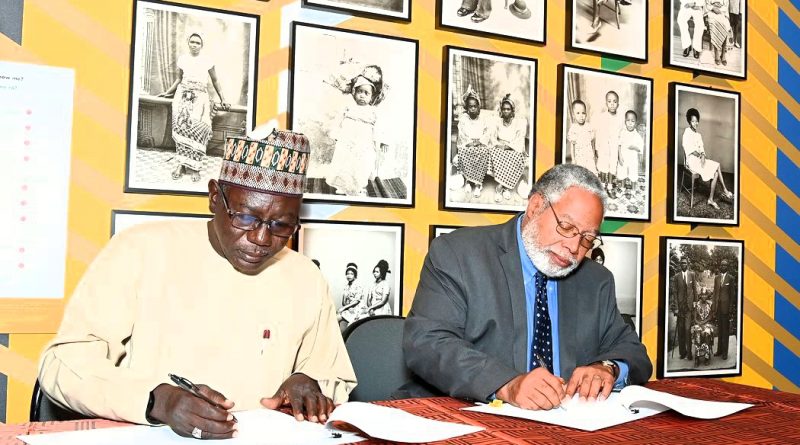Smithsonian, Two Other Museums Return Benin Bronzes to Nigeria …. Some museums returning pieces they say were taken unethically during the colonial era
Foreign Desk
Three U.S. museums transferred ownership of more than two dozen works of art known as the Benin Bronzes to Nigeria Tuesday, part of an effort to return pieces they say were stolen over a century ago.
British soldiers took thousands of artifacts in an 1897 raid of the Kingdom of Benin, in what is now Nigeria, as the U.K. expanded its colonial empire in West Africa.
The Benin Bronzes, sculptures and plaques made of bronze and brass, also include pieces made of ivory, wood and other materials. The pieces were taken to Europe and sold, ending up in museums and private collections around the world.
Most of the 31 pieces reclaimed by Nigeria Tuesday came from the Smithsonian Institution’s National Museum of African Art in Washington, D.C. One artwork came from the National Gallery of Art, also in Washington, and another from the Rhode Island School of Design Museum.
“The bronzes, which were part of the museum’s collection, were stolen from Nigeria during the 1897 British raid on Benin City,” the museum said in a statement Tuesday.
Representatives from the three institutions signed over the pieces at a ceremony in Washington on Tuesday. Most of the pieces will be shipped back to Nigeria in the next month. The Smithsonian said it is keeping nine on loan.

Lai Mohammed, Nigeria’s minister of information and culture, said in a statement that the country was happy to get back the artifacts from the museums. “Their brave decision to return the timeless artworks is worth emulating,” he said.
Countries have been asking institutions for decades to return antiquities they say were taken unethically. The efforts gained traction in recent years, with some museums acknowledging that their collections included works that were pilfered during colonization.
The Metropolitan Museum of Art in New York returned three artifacts to Nigeria last year. This summer, Germany agreed to transfer ownership of artworks to Nigeria. The Horniman Museum and Gardens said in August it would return its collection of Benin Bronzes and other artifacts to Nigeria.
Other countries have also lobbied for the return of art. Along with coordinating with political and law-enforcement officials in the U.S. and Europe, Mexico has used social-media campaigns to try to stop auctions of antiquities. Countries including Cambodia and Iraq are also pressuring auction houses to win back potentially pilfered objects.
The Smithsonian said in June that the 29 Benin Bronzes would be the first pieces transferred under a new policy of returning items taken in unethical ways.
The Smithsonian’s National Museum of Natural History, also in Washington, has 20 other Benin Bronzes. The Smithsonian said it is determining if those should be returned.
Write to Joseph Pisani at joseph.pisani@wsj.com
PHOTO: SHANNON FINNEY/GETTY IMAGES




